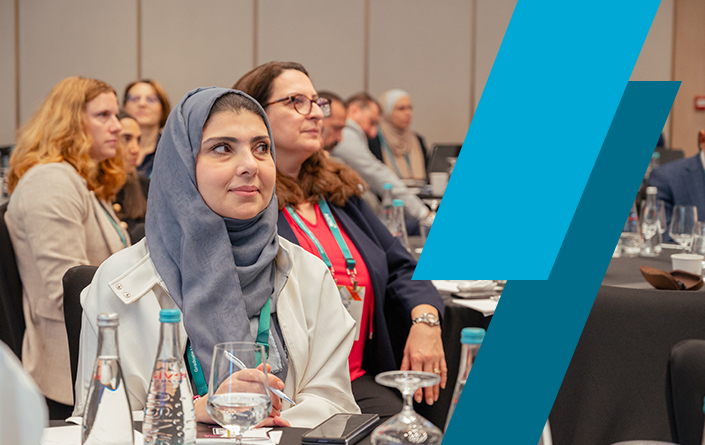Flexibility First in Lifelong Learning
- Business schools can expand their impact by helping employers understand that they offer lifelong learning opportunities for employees at all levels of the organization.
- Flexibility in format, timing, and content is essential for working professionals who seek educational programs that fit their careers and personal commitments.
- Embracing experimentation in program design and delivery enables schools to adapt quickly, refine offerings, and remain competitive in a dynamic educational landscape.
Transcript
Andrew Crisp: [00:14] Lifelong learning is becoming more important for today's employees because of the rapid pace of change in business itself.
[00:21] We find in our research that only about 35 percent of employers say they use business schools to deliver lifelong learning and executive education for their employees.
[00:31] Now, you could see that as a challenge, or you could see it as an opportunity. This means that 65 percent of people are your potential marketplace. They're not engaged at the moment.
[00:40] For some employers, the problem is that they think of universities as simply places for degrees. They don't know about the breadth of the offer.
[00:47] One of the reasons that employers use business schools is because they can deliver at a range of different levels within an organization. So understanding that there's an offer here for new graduates, an offer for middle managers, and an offer for senior executives is a real strength.
If you can have that opportunity to work around your lifestyle, family commitments, and work commitments, that flexibility is key.
[01:05] When people learn, when they're working, flexibility is most important. Very few want to give up a job as they might have done for a two-year MBA in the past.
[01:17] And in any case, learning all of those things that are in an MBA, probably only 10 percent of them would be relevant to where they are in their career currently. And so if you can have that opportunity to work around your lifestyle, family commitments, and work commitments, that flexibility is key.
[01:33] Degrees are still important. Individuals, particularly undergraduates, want that experience. Of course, some will still look for alternatives, but the vast majority will still do so.
[01:44] I think the master's degree is still popular as well. Not just pre-experience, but post-experience as well. We're seeing a growing number of schools offering post-experience master's in very specialized subjects.
The concept of the degree absolutely still holds, but the delivery of it could be very different.
[01:58] Somebody who doesn't want an MBA because an MBA is quite often about changing careers. They want something that will grow their current career, so they take a specialist masters. But they might do it very differently from what we're used to.
[02:13] It might be spread over several years and involve some face-to-face and some online. It might even be accompanied by an AI buddy that helps your learning as you go through those points, which points you to extra resources that assist you when you're stuck in a particular way.
[02:29] So, the concept of the degree absolutely still holds, but the delivery of it could be very different. Many business schools are looking to build lifelong learning strategies today, and I think the best advice for them is to experiment.
[02:45] Try something different, try something new, and don't expect it to work every time; but learn from it, close it down quickly if it doesn't work, and move on. It isn't about starting one-day linear, and finish in three or four years.
[02:59] It's about changing, switching, moving, being flexible, and delivering differently. So, I think imagination and experimentation are the best advice I can give.






